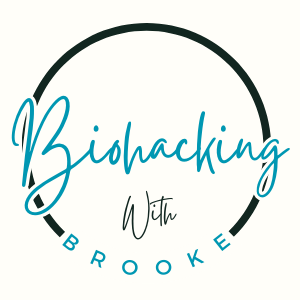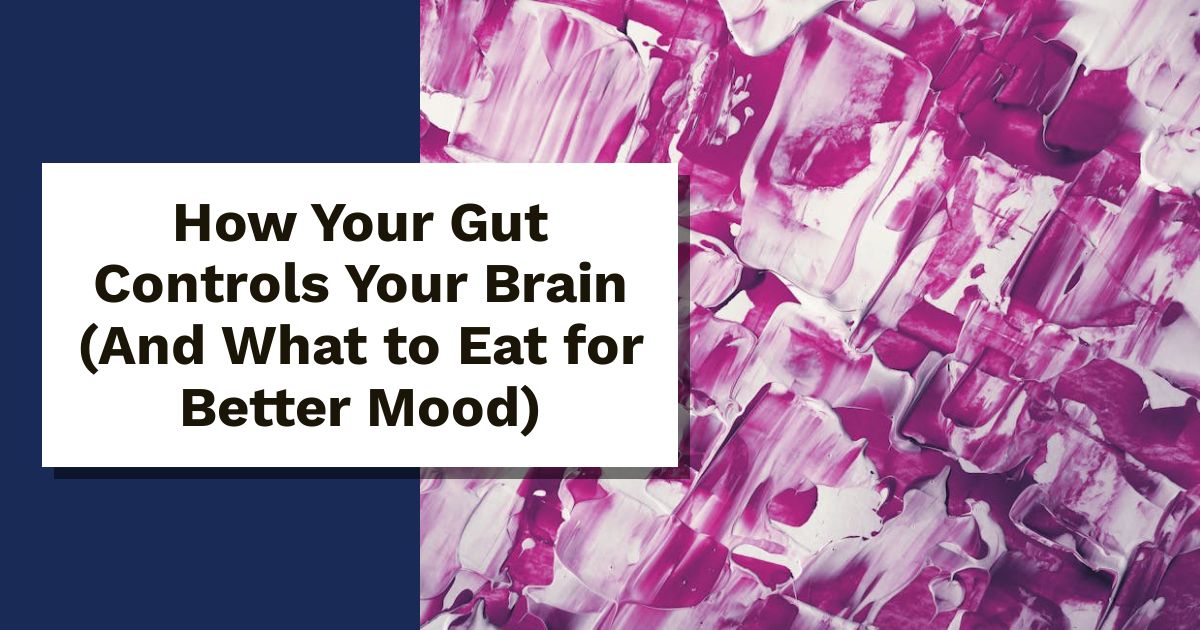Ever get a gut feeling that’s spot on? Turns out, it’s more than just intuition. Your gut and brain are in constant communication, and the food you eat plays a huge role in that connection. From mood swings to mental clarity, your diet can directly impact how your brain functions. In this post, we’ll break down how this bond works and what you should eat to keep both your belly and brain happy.
What is the Gut-Brain Connection?
The gut-brain connection describes the intricate relationship between our digestive system and our brain. This link shows how gut health can influence our mood, mental clarity, and overall well-being. Understanding this connection can help us make better dietary choices to support both gut and brain health.
The Role of the Gut Microbiome
The gut microbiome consists of trillions of microorganisms that live in your intestines. These tiny allies play a crucial role in digestion and mood regulation. They help break down the food you consume, allowing your body to absorb essential nutrients effectively.
But their benefits don’t stop at digestion. Research indicates that these microbes can influence your emotional well-being. For example, certain bacteria produce neurotransmitters, like serotonin, which are vital for mood regulation. An imbalance in your gut microbiome can lead to feelings of anxiety and depression.
For a deep dive into how these microorganisms affect mood, check out this article from Stanford.
How Gut Signals Reach the Brain
The gut communicates with the brain through a network of nerves known as the enteric nervous system. This system is often referred to as the “second brain” because it can operate independently of the central nervous system. The vagus nerve plays a vital role in this dialogue, sending messages back and forth between the gut and brain.
When you eat something, your gut sends signals about what’s happening. Is it full? Is it digesting properly? Chemicals like glutamate act as messengers in this communication process. Disruptions in this messaging system can affect not just digestion but also your mental health.
Explore more about this fascinating communication link through Cleveland Clinic’s insights.
By understanding these connections, you can make dietary choices that support both your gut health and mental well-being.
Foods That Fuel the Brain
Fueling your brain starts with the right foods. The gut influences how our brain functions, mood, and cognition. Here are some power-packed food categories you should consider for optimal brain health.
Probiotics and Fermented Foods
Probiotics are live bacteria that deliver health benefits when consumed. Incorporating fermented foods into your diet is an excellent way to boost your probiotics. These foods include yogurt, kimchi, sauerkraut, and kefir. They not only contribute to gut health but also enhance brain function.
Research shows that probiotics can improve mood and cognitive function. They may even lower stress and anxiety levels, thanks to their ability to produce neurotransmitters like serotonin in the gut. When you consume fermented foods, you’re feeding your gut microbiome, which works wonders for your emotional well-being.
For a closer look at these benefits, check out this article on the effects of fermented foods.
Prebiotic Foods
Prebiotics are non-digestible fibers that feed the good bacteria in your gut. Foods rich in prebiotics include bananas, onions, garlic, and whole grains. These foods not only help your gut flora thrive but also positively impact your mood.
When good bacteria digest prebiotics, they produce short-chain fatty acids that contribute to reducing inflammation and supporting brain health. Some studies connect higher prebiotic intake with a decrease in anxiety and depression. Eating a variety of fruits and vegetables can significantly uplift your mood.
Discover more about the impact of prebiotics on mental health in this study on prebiotics and mood.
Omega-3 Fatty Acids
Omega-3 fatty acids are crucial for brain health. Found in fatty fish like salmon, walnuts, and flaxseeds, these healthy fats promote cognitive function and emotional stability. Omega-3s help reduce inflammation in the brain, which is linked to better mental performance and mood regulation.
These powerful fats play a role in brain structure and neurotransmitter function, making them essential to your diet. Research suggests that omega-3s may even help reduce the risk of cognitive decline. Incorporating a few servings of omega-3-rich foods each week can make a noticeable difference in your mental health.
Learn more about the benefits of Omega-3 fatty acids from this resource on brain health.
Diet and Mental Health
Understanding the connection between diet and mental health can empower you to make better choices for your well-being. What you eat can significantly impact how you feel, both physically and mentally. Research supports a strong link between dietary habits and mental health issues like anxiety and depression. The right foods can serve as supportive allies in managing these conditions.
The Link Between Diet and Anxiety
Anxiety has many triggers, and diet is a crucial factor. Research shows that certain foods can help ease anxiety symptoms. For instance, carbohydrates can increase serotonin levels in the brain, promoting a calming effect. Meal choices can be a simple yet effective way to manage feelings of anxiety.
- Complex Carbohydrates: Foods such as whole grains, fruits, and vegetables can stabilize blood sugar levels. Steady blood sugar means fewer anxiety spikes.
- Magnesium-Rich Foods: Leafy greens like spinach and nuts are excellent sources of magnesium, which can help regulate mood.
- Hydration is Key: Staying hydrated can also mitigate anxiety. Dehydration may mimic or worsen anxiety symptoms.
Eating regular, balanced meals filled with nutrients can create a more stable emotional baseline. For more insight, check out Nutritional strategies to ease anxiety.
Foods to Avoid for Better Mood
Not all foods boost mood—some can actually pull it down. Certain dietary choices can contribute to feelings of anxiety and depression. Identifying these foods is crucial to enhance your mental well-being.
- Processed Foods: Items like chips, pastries, and sugary snacks can negatively influence your mood. These foods often lead to blood sugar spikes followed by crashes.
- High-Fat Dairy Products: Foods high in trans fats can increase the risk of depression. Opting for lower-fat options or plant-based alternatives can be beneficial.
- Caffeine and Alcohol: Both can affect your sleep and increase anxiety. Moderation is essential here.
- High-Sugar Foods: Excessive sugar can lead to mood swings and irritability. Aim for natural sugars found in fruits instead.
Making adjustments to your diet can lead to a more balanced emotional state. Avoiding these mood-dampening foods can help improve your overall sense of well-being. To learn more about foods that can help elevate your mood, visit Foods to Avoid If You Have Anxiety or Depression.
Practical Tips for a Gut-Friendly Diet
Eating well for your gut doesn’t have to be complicated. Simple changes can make a big difference. Let’s explore how to incorporate probiotics into your diet and meal prep ideas that keep your gut happy.
Incorporating Probiotics Daily
Probiotics are like friendly little helpers for your gut. Adding them to your meals can boost your digestion and mental health. Here are some easy ways to get your daily dose of probiotics:
- Start Your Day Right: Mix some yogurt or kefir into your morning smoothie. It’s a tasty way to kick off your day with beneficial bacteria.
- Top Your Foods: Sprinkle some sauerkraut or kimchi on your salad or sandwich. It adds flavor and a probiotic punch.
- Snack Smart: Choose snacks like fermented pickles or olives. These snacks not only crunch but also contribute to a gut-friendly diet.
- Smoothies and Juices: Blend your favorite fruits with probiotic-rich ingredients. A simple mix of berries and kefir is refreshing and gut-approved.
For more ideas on daily probiotic intake, check out EatingWell’s article on ways to eat more probiotics every day.
Meal Prep for Gut Health
Meal prepping is a smart way to maintain a gut-friendly diet. Having meals ready can help you stick to your goals. Here are some simple meal prep ideas:
- Batch Cook Fermented Foods: Make a big batch of kimchi or sauerkraut. It lasts weeks and can top many dishes.
- Overnight Oats: Combine oats, yogurt, and your favorite fruits. Let them sit overnight for a gut-loving breakfast.
- Veggie Packs: Chop up various gut-friendly veggies like sweet potatoes, carrots, and leafy greens. Roast them in bulk and use them in salads or as sides.
- Soup it Up: Prepare a hearty soup with beans and prebiotic-rich vegetables. Freeze portions for easy access throughout the week.
For comprehensive meal prep strategies, explore EatingWell’s 30-day gut-healthy meal plan. This can kickstart your journey to better gut health.
Making these small dietary changes can set you on a path to a happier gut and mind.
The Future of Gut Health Research
Research into gut health is rapidly advancing, revealing fascinating links between diet and mental wellness. As we look ahead, emerging trends and personalized nutrition approaches are set to redefine how we think about food and its impact on our gut and brain.
Emerging Trends in Nutritional Psychiatry
Nutritional psychiatry is gaining traction, opening doors to fresh dietary recommendations. Recent studies shed light on how food directly affects mood and mental clarity.
- Whole-Food Diets: Research indicates that diets rich in whole foods, like the Mediterranean diet, can enhance emotional resilience and decrease the risk of mental health disorders. For insights on these dietary effects, check out Nutritional Treatments: The Next Frontier in Psychiatry.
- Gut-Brain Axis: New findings highlight the gut-brain axis and its role in mental health. Microbiome diversity shows promising effects on brain function. Studies suggest that a balanced gut flora can lead to improved emotional regulation. Learn more about the link between diet and mood disorders in Nutritional Psychiatry: Emerging Field Reveals that Dietary Patterns Matter.
- Functional Foods: These foods include ingredients that provide health benefits beyond basic nutrition. They are increasingly being studied for their potential to alleviate symptoms of anxiety and depression. Explore more developments in this field via Recent Advances in Nutritional Psychiatry.
Potential of Personalized Nutrition
Personalized nutrition is on the rise, promising tailored dietary recommendations that can optimize gut health. This approach considers an individual’s unique biology, lifestyle, and preferences, making diet a more powerful tool for health.
- Individualized Diets: Tailoring diet plans to personal needs can lead to better health outcomes. For instance, understanding how your body reacts to certain foods can help mitigate digestive issues and enhance mood. Read more about this in Effect of Personalized Nutrition on Dietary, Physical Activity.
- Data-Driven Insights: Advances in technology allow for more accurate tracking of dietary habits and their effects. Wearables and dietary apps collect data that can inform personalized meal plans. Discover the click-to-action potential of personalized nutrition in Unlocking The Potential of Personalized Nutrition.
- Holistic Approaches: Integrating mental health with nutrition can optimize well-being. Personalized diets tailored to mental health can enhance cognitive function and emotional balance. Explore these strategies in Precision Nutrition: Maintaining Scientific Integrity While Tailoring Dietary Advice.
With these emerging trends and the potential of personalized nutrition, the landscape of gut health research is set to transform how we think about food, health, and well-being.
Conclusion
The gut-brain connection shows just how closely your gut influences your mood and mental health. By eating the right foods, you can support your brain and improve your overall well-being.
Focus on probiotics, prebiotics, and omega-3s to fuel that connection. Start making small dietary changes today. What will you include in your next meal to boost your gut health?
Brooke is a rock-climbing 🧗♀️, tennis-playing 🎾, biohacking 🧬 bookworm 📚 on a mission to unlock the secrets of health, longevity, and living life to the fullest 🌟. When she’s not scaling cliffs, hitting the courts, or testing out the latest hacks, you’ll find her nose in a book or adventuring with her four-legged best friend 🐕 by her side. With a knack for turning science into simple, actionable tips, Brooke’s writing is your guide to hacking your biology and living your best, most vibrant life!


